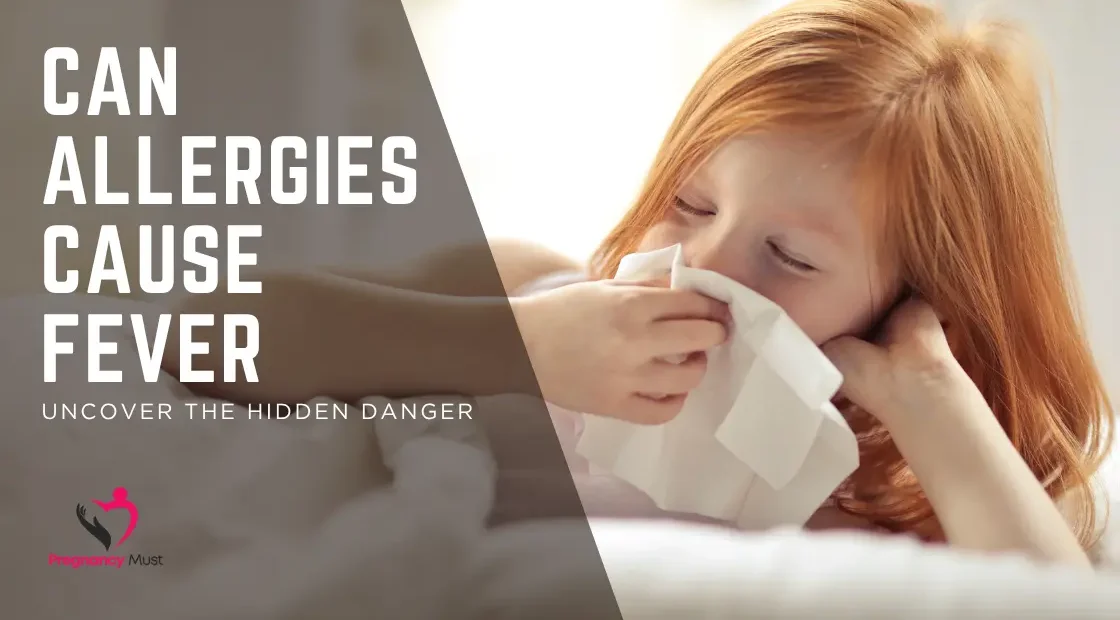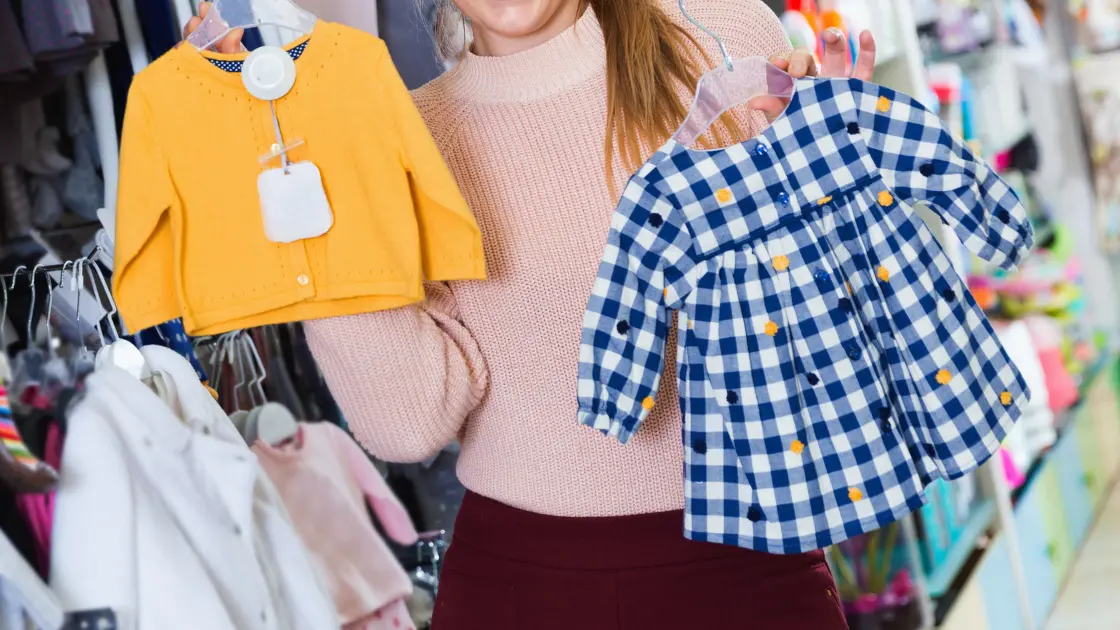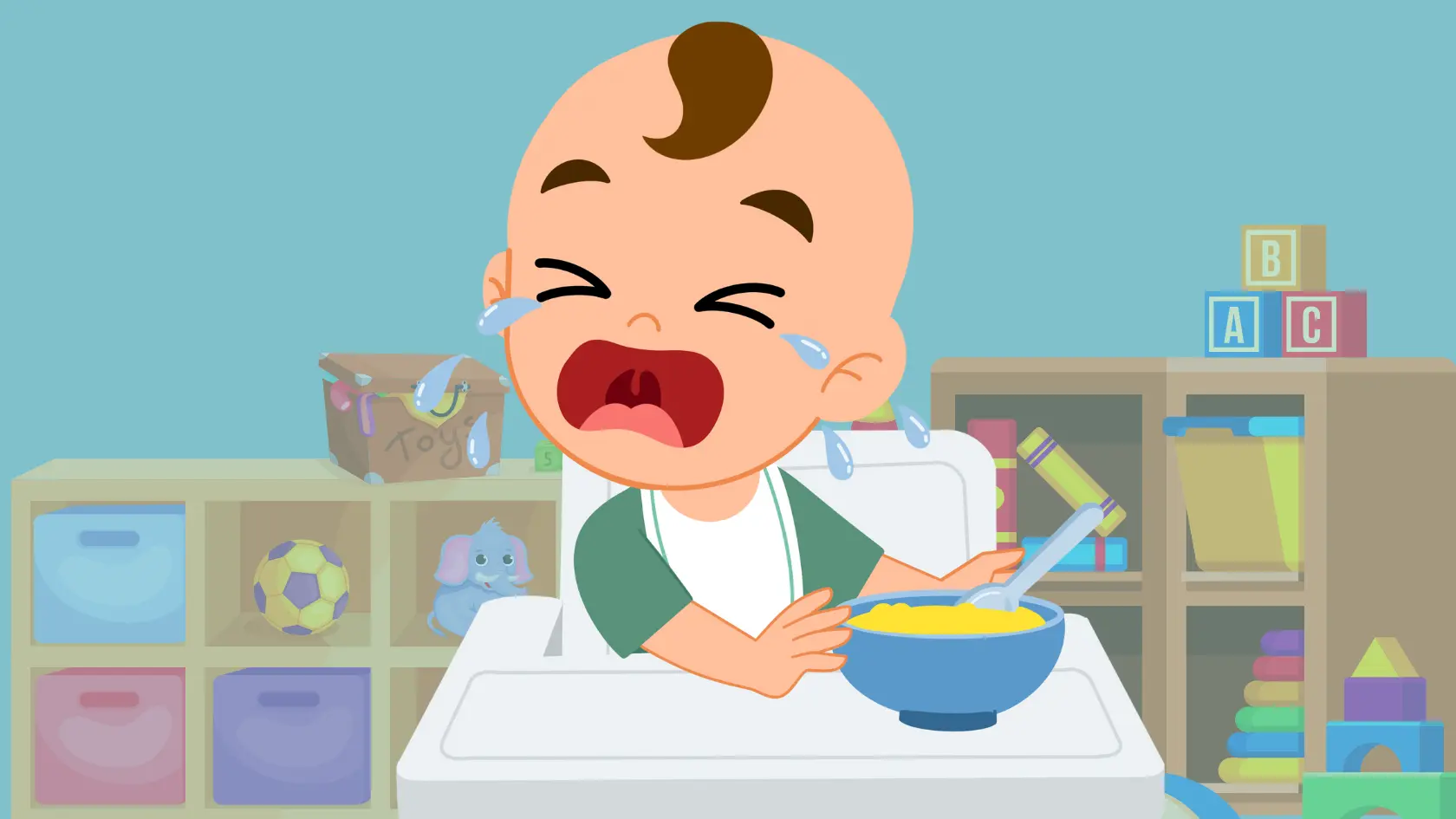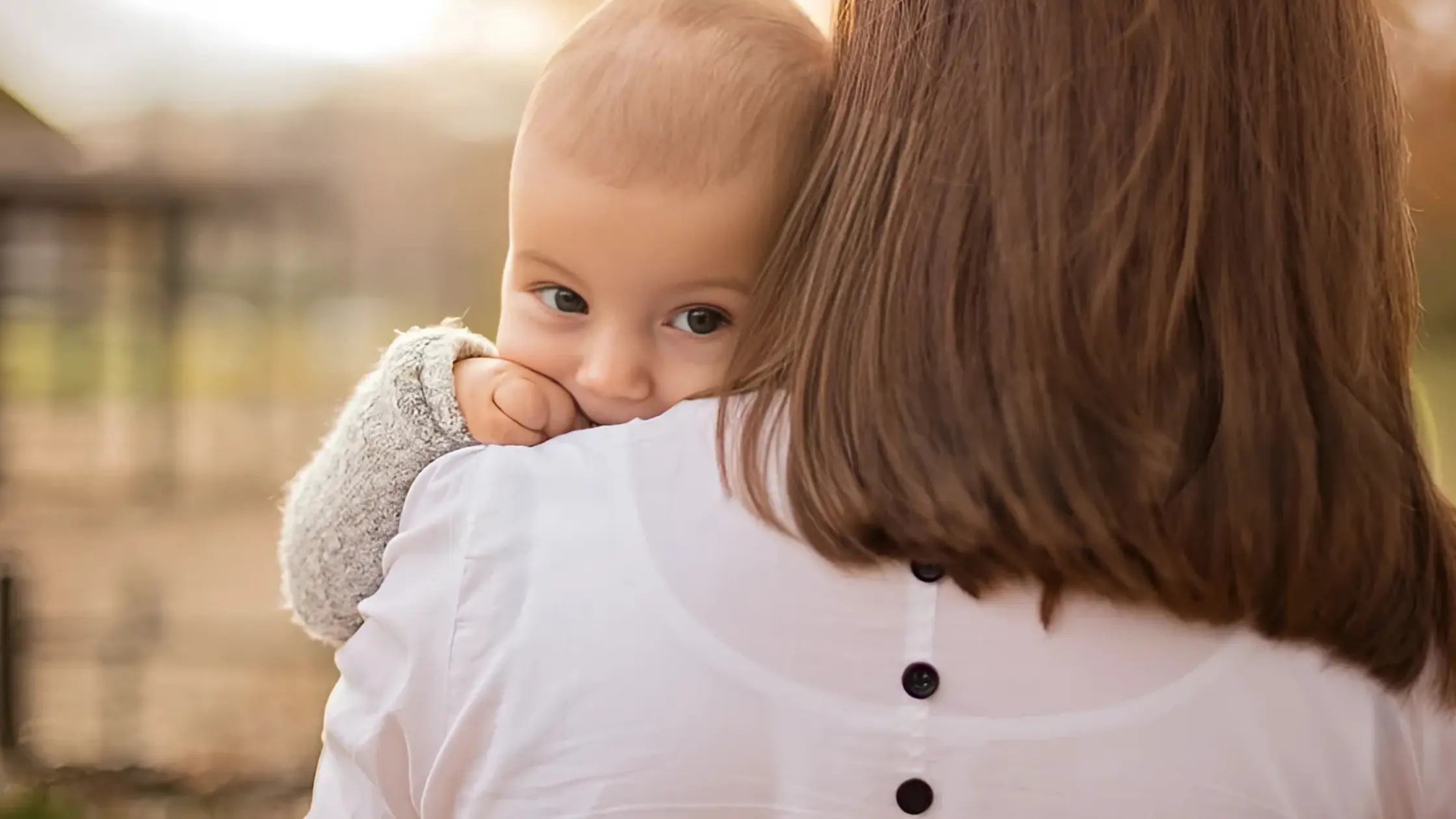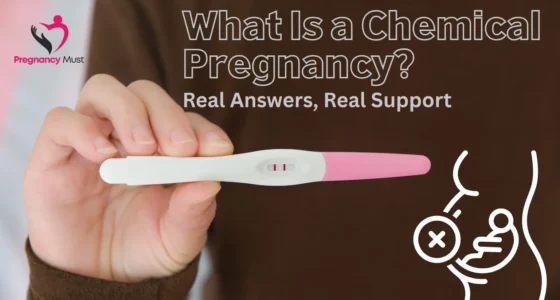Can allergies cause fever in babies, toddlers, or even pregnant moms? That’s one of the most common — and misunderstood — questions parents ask during allergy season. Let’s break it down with care and clarity.
Table of Contents
- Understanding Allergies in Babies, Children, and Pregnant Women
- Can Allergies Cause a Fever? The Medical Truth
- Symptoms of Allergies vs. Infections in Kids
- How Allergies Impact Babies Differently Than Older Kids
- Can Seasonal Allergies Cause Fever in Pregnancy?
- How to Tell Allergy Fever from Flu or Cold
- Home Remedies & Treatments Moms Can Trust
- When to Call a Pediatrician or OB-GYN
- Preventive Care for Allergy Season: Mom & Baby Edition
- Best Allergy Medications During Pregnancy & Childhood
- Frequently Asked Questions (FAQ)
- Conclusion: Can Allergies Cause Fever?
Understanding Allergies in Babies, Children, and Pregnant Women
Allergies are immunological reactions connected with the harmless substances like pollen, dust, food, or pet dander. When the body detects these allergens, it reacts with sneezing, coughing, itchy eyes, and runny noses. These are classic signs of seasonal allergies — but can allergies cause a fever too?
While allergies don’t typically cause a high temperature like infections do, sometimes the symptoms feel so overwhelming that parents confuse the body’s stress response with an actual fever. Let’s dive deeper.
Can Allergies Cause a Fever? The Medical Truth
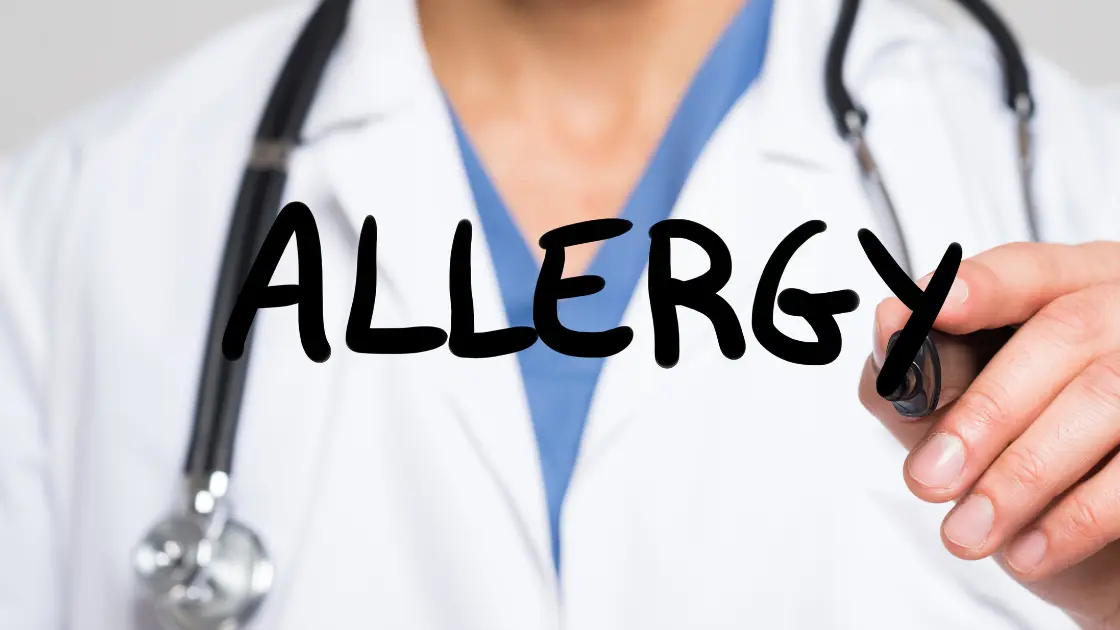
What Science Says About “Can Allergies Cause a Fever?”
Medically, the answer is mostly no. Allergies themselves do not trigger a true fever. Fever is an increase in body temperature due to infection — viral or bacterial — whereas allergies are inflammatory responses. However, the confusion arises when:
- A child scratches their nose until it’s sore
- Sinus congestion leads to a feeling of “warmth”
- Exhaustion mimics flu-like symptoms
But Then Why Do Kids Seem “Hot” During Allergy Season?
That’s the tricky part. Allergies often cause inflammation, especially in the sinus cavities. This inflammation can make your child feel warmer than usual, even though a thermometer may not show a fever.
In rare cases, especially in babies and toddlers, allergic reactions can trigger secondary infections like sinusitis, and that can absolutely result in a real fever.
Symptoms of Allergies vs. Infections in Kids
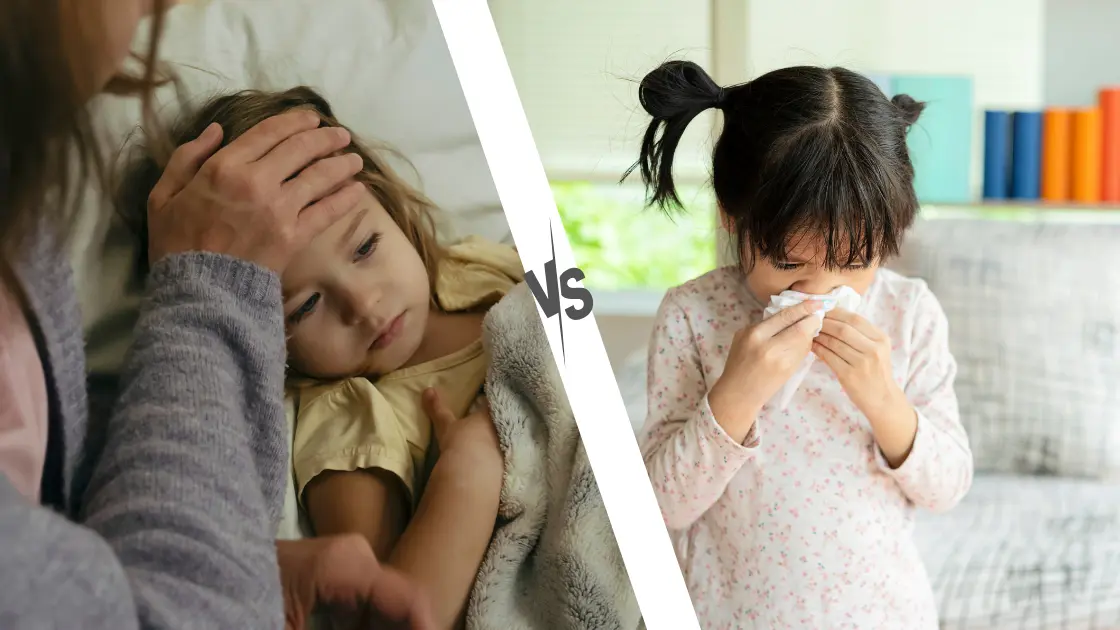
It is normal to freak out when you see that your baby or toddler has a runny nose and they are warm. What about all those people who have just allergies, but think that something more serious is going on?
Allergy Symptoms in Children
🌀 Clear, Watery Runny Nose
This is one of the most common signs of seasonal or environmental allergies in children and even babies. Unlike a cold, the mucus is clear and watery, not thick or yellow. It often drips constantly, especially when your child is near dust, pollen, or pets.
🫨 Sneezing Fits
Allergic sneezing usually comes in rapid bursts — not just once or twice. You might notice your child sneezing five to ten times in a row, especially after playing outside or being exposed to indoor triggers like perfumes or pet dander.
👁️ Itchy, Red, or Watery Eyes
This symptom is often a giveaway that allergies — not illness — are to blame. Your child may rub their eyes frequently, and the whites of their eyes might look pink or glassy. Sometimes, the eyes tear up so much it looks like they’re crying.
🩸 Scratchy Throat
Instead of a sore throat from infection, allergic kids often describe a tickly or dry feeling. Babies might cough lightly or make throat-clearing noises. It’s usually caused by postnasal drip from constant nasal drainage.
💤 Mild Tiredness but Normal Mood
Allergies can drain your child’s energy slightly due to inflammation and disrupted breathing, but they’ll generally still play, smile, and act like themselves. That’s different from illness-related fatigue, which often makes children unusually cranky or sluggish.
🍽️ No Change in Appetite or Sleep
If your child is eating and sleeping normally, that’s a good sign. Illness often reduces appetite or disrupts rest — but allergies usually don’t.
☀️ No True Fever (But May Feel Warm)
Allergy-related inflammation, especially in the sinuses, can make your child feel warm to the touch. But unless a thermometer shows a temperature over 100.4°F (38°C), it’s not a real fever.
Infection (Cold or Flu) Symptoms
🤧 Yellow or Green Nasal Mucus
Unlike the clear discharge from allergies, cold or flu mucus is thick and discolored — usually yellow or green. This change signals the body is fighting an infection.
😮💨 Cough with Phlegm
This type of cough produces mucus and often sounds wet or chesty. It’s a common sign of respiratory infections and may worsen when lying down.
🦴 Muscle Aches or Body Chills
When a fever sets in, your child may feel achy or experience chills. These are signs the body’s immune system is working hard to fight a virus or bacterial infection.
😠 Sudden Irritability or Fatigue
A child who becomes unusually fussy or sleepy, especially if the change happens suddenly, may be coming down with something. Illness fatigue tends to be more severe than allergy tiredness.
🍽️ Appetite Loss
The sick children also may refuse food or drink. As opposed to allergies, infections usually lead to the loss of appetite because of nausea, sore throat, or general malaise.
🛏️ Sleep Disturbances
Fever, coughing, and congestion can disrupt your child’s normal sleep cycle. You may notice restlessness, night waking, or difficulty falling asleep.
🌡️ True Fever (Above 100.4°F or 38°C)
This is a fundamental contrast between illness and allergies. Use a thermometer to check. A real fever is usually the sign of an infection, not a reaction to allergens.
Quick Tip for Moms:
Always rely on a digital thermometer. Also if the temperature is above 100.4°F it is most likely not just allergies — call your pediatrician.
How Allergies Impact Babies Differently Than Older Kids
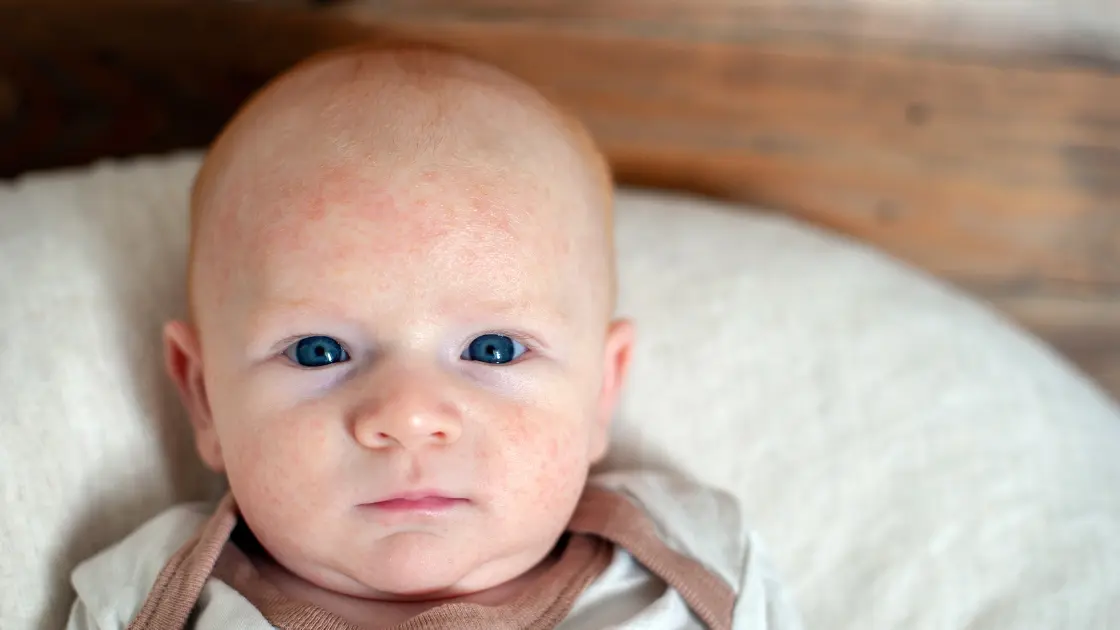
Natural remedies may not be sufficient when symptoms linger. But don’t stress — there are safe allergy medications for babies and pregnant moms.
👶 Common Baby Allergy Triggers:
- Cow’s milk-based formula or some foods
- Pet dander or dust mites
- Laundry detergents or perfumes
- Pollen or mold in the home
Can Babies Have Fever from Allergies?
Again, can allergies cause fever in babies? Not directly. But inflammation in the sinuses or eczema flare-ups can make their skin feel warmer. Plus, babies are more prone to ear infections, which can cause a real fever.
If your baby looks flushed and irritable, check for other symptoms like ear tugging or crying while lying down — these may signal infection, not just an allergy.
Can Seasonal Allergies Cause Fever in Pregnancy?
Pregnancy brings enough discomfort — but add allergies to the mix, and it gets confusing. Many expectant moms ask: Can seasonal allergies cause fever during pregnancy?
🌼 The Honest Answer:
No, seasonal allergies do not cause fever by themselves, even in pregnancy. But during allergy season, your body may respond with:
- Increased fatigue
- Nasal inflammation
- Feeling flushed or overheated
- Mild headaches or pressure in the face
These symptoms mimic fever, especially if you’re already experiencing hormonal heat sensitivity during pregnancy.
But What If I Actually Feel Hot?
Pregnant women naturally run a bit warmer. Add congestion or sinus swelling from allergies, and you may feel “feverish.” But unless your temperature exceeds 100.4°F (38°C), it’s unlikely to be a true fever.
However, you must be cautious. If you have:
- Chills or body aches
- Chest tightness or shortness of breath
- Persistent headache with nausea
Then consult your OB-GYN. You may be battling an infection alongside allergies.
How to Tell Allergy Fever from Flu or Cold
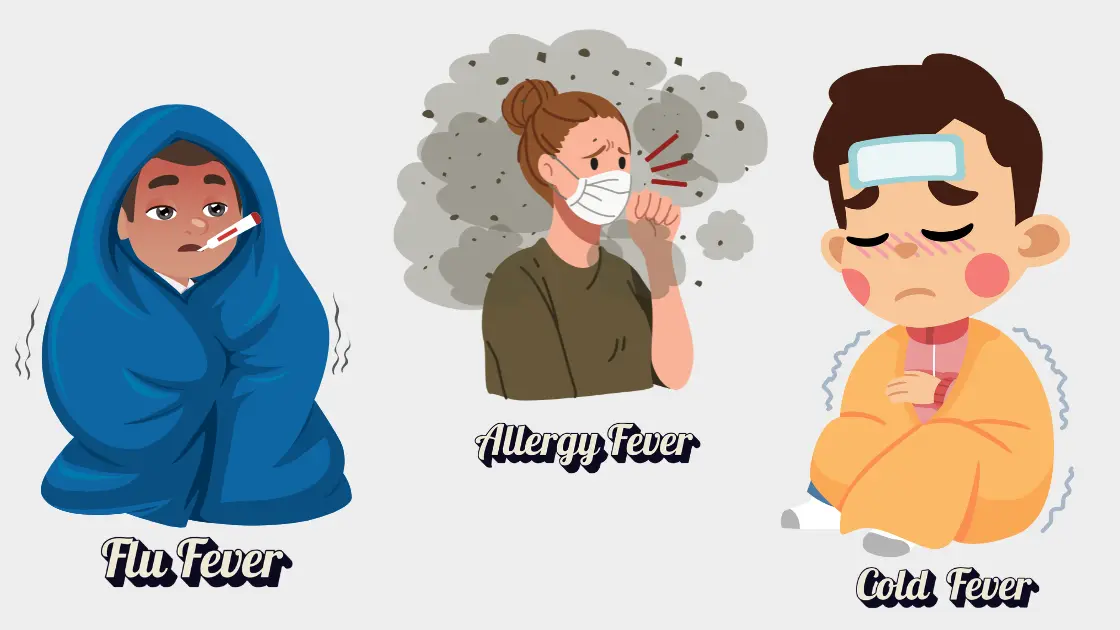
During the pollen season, colds and flus symptoms are commonly mistaken by parents as an allergy flair. Let us simplify it.
Symptom | Allergies | Cold/Flu |
Runny Nose | ✅ Clear | ✅ Thick (yellow/green) |
Fever | ❌ Rare | ✅ Common (101°F+) |
Body Aches | ❌ | ✅ Yes |
Sneezing | ✅ Frequent | ✅ Occasional |
Itchy Eyes/Nose | ✅ Yes | ❌ Rare |
Onset | Gradual (days/weeks) | Sudden (hours/days) |
Pro Tip for Moms:
If your child has a fever and mucus color has changed, don’t blame allergies. Get a diagnosis. Sometimes, allergies weaken immunity, making viral infections easier to catch.
So, the answer to can allergies cause a fever is — no, but they can create the perfect storm for one.
Home Remedies & Treatments Moms Can Trust
When it comes to your child’s health, smooth is certainly better, and all natural is a great place to start — especially if you are treating an allergy at home.
👩👧 Gentle At-Home Treatments:
- Nasal Saline Spray – Clears allergens from tiny noses
- Steam Inhalation – Loosens mucus and reduces sinus pressure
- Cool Compress – Helps reduce facial warmth and soothe irritation
- Humidifier in the Nursery – Keeps airways moist
- Allergen-Free Bedding – Blocks dust mites and dander
For Pregnant Moms:
- Drink warm fluids (chamomile, lemon water)
- Sleep with your head slightly elevated
- Avoid known triggers (pollen, dust, strong perfumes)
Even if allergies can cause a fever seems like a tricky question; these remedies treat the underlying discomfort, whether or not a fever is present.
When to Call a Pediatrician or OB-GYN
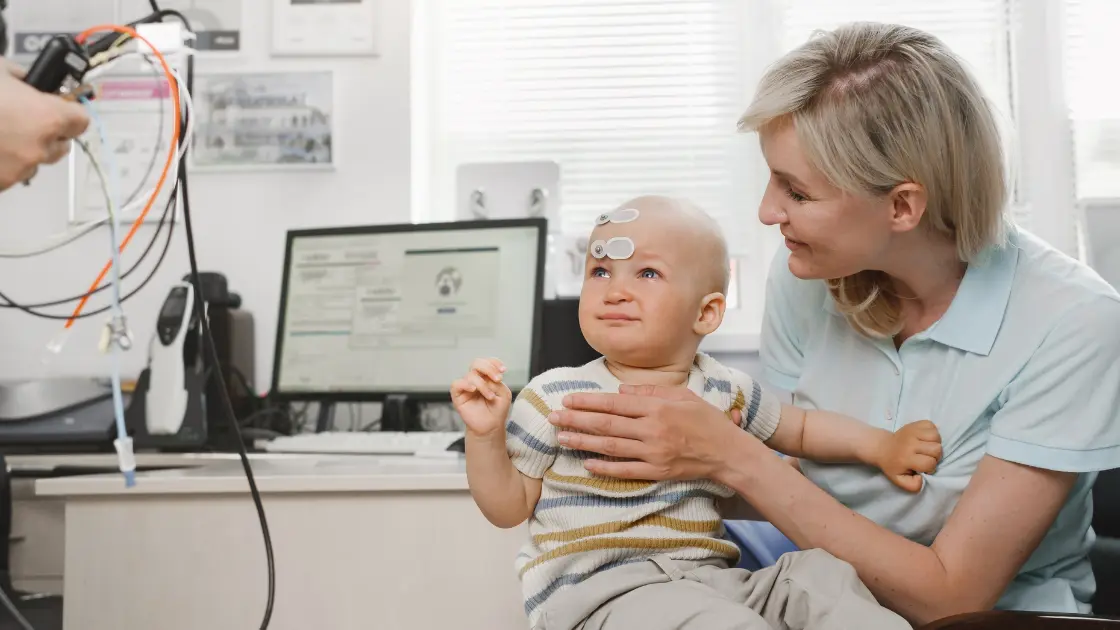
Always trust your mom gut. If your child or you experience any of the symptoms below, consult a professional immediately.
⚠️ Call the Doctor If:
- Fever exceeds 100.4°F (38°C)
- Ear pain, tugging, or drainage appears
- Severe coughing, wheezing, or breathing trouble
- Rash accompanies other symptoms
- Baby isn’t feeding well or seems lethargic
- Pregnant moms feel dizzy or faint with allergy symptoms
Final Reminder:
Allergies can trigger sinus infections or ear infections, especially in babies — and those can absolutely lead to fever. So while the answer to can allergies cause a fever is mostly no, complications can change the game.
Preventive Care for Allergy Season: Mom & Baby Edition
Prevention is the best defense — especially when you’re unsure whether allergies cause fever in your child or during pregnancy.
🧼 Smart Prevention Tips for Babies & Toddlers:
- Use HEPA air purifiers in nursery and living areas
- Wash hands and face after outdoor play
- Bathe baby before bedtime during pollen season
- Keep pets out of baby’s room
- Dust and vacuum weekly with allergen filters
🧐 Prevention Tips for Pregnant Women:
- Limit outdoor exposure at times when pollen is at a peak (10am–4pm)
- After you return, rinse sinuses with saline
- Use a mask when gardening or dusting
- Shut windows when pollen is high
These precautions can prevent allergy flare-ups, which in turn can lower the risk of can cause fever in children or pregnancy complications.
Best Allergy Medications During Pregnancy & Childhood
Natural therapy is not always alone that does the trick when symptoms remain inert. And there is nothing to worry about since we have harmless allergy remedies both to the babies and busy mums-to-be.
👶 For Babies (Always doctor-approved):
- Antihistamine drops (for itchy eyes)
- Nasal saline sprays
- Cetirizine (Zyrtec) – Used for children 6 months to sometimes teens
🧒 For Pregnant Moms:
- Loratadine (Claritin) – Category B, safe in 2nd/3rd trimester
- Nasal Cromolyn Spray – Non-steroidal, non-hormonal
- Saline nasal rinses – Completely safe
Important: Always consult a pediatrician or OB-GYN before giving any medicine.
So again, while can allergies cause a fever is usually a no, untreated allergies can lead to fever-causing complications like sinusitis or ear infections. Stay ahead with the right care.
Frequently Asked Questions (FAQ)
Can allergies cause a fever in toddlers?
No, allergies alone don’t directly cause fever in toddlers. However, if the allergy leads to a sinus infection or ear infection, your toddler may develop a real fever.
Can seasonal allergies cause fever during pregnancy?
Seasonal allergies do not typically cause a fever in pregnant women. But congestion, sinus pressure, and hormonal heat sensitivity may make you feel feverish.
Is feeling warm during allergy season normal for babies?
Yes. Babies may feel warm from nasal inflammation or overexertion during allergy symptoms. But unless a thermometer shows an actual fever, it’s usually not a cause for alarm.
How do I know if it’s allergies or a cold in my child?
Look at the symptoms:
- Clear runny nose and itchy eyes? Likely allergies.
- Thick mucus and fever? More likely a cold or infection.
Can allergies trigger infections that lead to fever?
Yes. Persistent nasal congestion due to allergies can create ideal conditions for bacterial sinus infections or ear infections — both of which can lead to fever.
Should I treat a baby’s allergy at home or call a doctor?
Start with home care: saline sprays, clean bedding, and allergen control. But call your pediatrician if:
- Symptoms do not improve, or continue for over 10 days
- Baby develops a high fever
- There’s difficulty breathing, feeding, or sleeping
Conclusion: Can Allergies Cause Fever?
Allergies are tough, especially when you’re caring for a baby — or you’re pregnant yourself. The question can allergies cause fever has a simple answer: not directly. But don’t ignore the signals.
With the right care, prevention, and quick responses to symptoms, you can manage allergies safely and avoid complications that could lead to fever.
Keep your little one comfy. Keep yourself informed. And trust your mom instincts — always.
Get answers to all your parenting and pregnancy-related questions like “Can Allergies Cause Fever?” in Pregnancy Must . Explore more-
